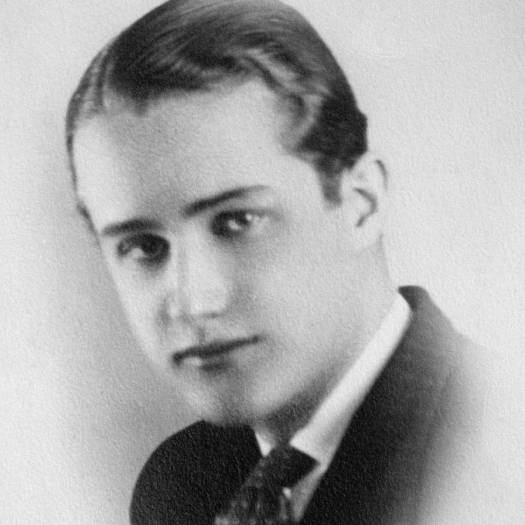See the list of topic categories here.
With what foolish enthusiasm humanity channels life toward the most trivial form of existence: social movements. It is less vain to limit oneself to pure animalistic existence, to mere physical activity.
The act of despoiling an individual of his goods is called robbery, when another individual does the despoiling.
And social justice, when an entire collective entity robs him.
There is no lexicon more propitious to serve ideological purposes than that of “justice.”
In order to acquit or condemn, it is not enough to know if a person is “oppressor” or “oppressed.” What is necessary, in order to judge, is to know what they do and who they are.
Inequality and equality are theses that should be defended alternatively, against the dominant social climate.
In a leveled and egalitarian society, power belongs always and absolutely to the majority, who identify “freedom” with the fulfillment of their wishes.
Seeking solutions to social problems, that is, aiming for a perfect and definitive balance, is an absurd longing, because it presupposes that there is an ultimate order of society. In reality, there are as many possible orders and as many possible societies as there are possible individuals.
“Equality of opportunity” does not mean it is possible for all to be decent, but that all have the right to be indecent.
Society is now ordered against the family, and a greater intensity of social devotion corresponds to a greater disintegration of the family unit.
The leftist screams that freedom is dying when his victims refuse to finance their own murders.
Absolute monarchies were less reckless with the fate of an individual than absolutist popular movements are with the fates of entire social classes.
The leftist Catholic is correct when he detects the bourgeois in the parable of the rich man, but is mistaken when he identifies the poor of the Gospel with the militant proletariat.
Society is often unfair, but not like the vain imagine it to be. There are always more masters who do not deserve their position that servants who do not deserve theirs.
“The social good” serves as a pretext for all swindles.
The stupidity of radicals almost makes us defend the injustices they denounce.
“Justice” has been one of the motors of history, because it is the name assumed by envy in the mouth of the complainant.
When they declare property a social function, confiscation is near;
when they declare work a social function, slavery is on the way.
When he is not granted everything he demands, the leftist proclaims himself the victim of institutional violence- and that it is just for him to resist this with physical violence.
Equity is the barbarian’s substitute for order.
I prefer the scandalous miracle worker of the Gospels to the professor of social ethics invented by the modern clergy.
An “ideal society” would be a graveyard of human greatness.
Social mobility causes class war. The enemy of the upper class is not the lower class who has no chance to advance, but rather the man who fails to rise when others do.
Even between fanatical egalitarians, a brief personal encounter can reestablish a belief in human inequalities.
Transcendence becomes dualism, and dualism becomes Manichaeism, where egalitarianism eclipses the very notion of hierarchy.
If men where born equal, they would invent inequality in order to kill boredom.
Rather than seek an explanation for inequalities, anthropologists ought to search for an explanation of the very notion of equality to begin with.
To be a leftist is to judge the adversary not only guilty of his crimes but also of your own.
In an egalitarian society neither the magnanimous nor the humble belong; there is only room enough for the pretentious virtues.
In these times, when we hear someone exclaim “how very civilized!” “how very humane!”, we can be sure without a doubt that we are dealing with abject stupidity.
An intense concern for the condition of his neighbor allows a certain type of Christian to hide his own doubts regarding the divinity of Christ and the existence of God. Charity can be the most subtle form of apostasy.
Having promulgated the dogma of original innocence, democracy concludes that the culprit of the crime is not the envious murderer but the victim who aroused his envy.
Compassion, in this age, is an ideological weapon.
When a system of “exploiter” and “exploited” is abolished, the exploited simply split into exploiter and exploited.
If the partisan of equality is not motivated by envy, the only other possibility is that he is stupid.
On the open steppe, there is no shelter from the inclemency of nature, just as in the egalitarian society there is none from the inclemency of man.
Democratic tribunals do not strike fear in the hearts of the guilty, but the accused.
The left claims that the culprit in a conflict is not the one who covets the goods of another, but the one who defends his own.
Sentimentality, benevolence, philanthropy, are the incubators of great democratic massacres.
Habitually over-familiar behavior is the hypocrisy of the egalitarian who, in reality, considers himself inferior, or superior, but not actually an equal.
Those who replace the “letter” of Christianity with its “spirit” generally turn it into bunch of socioeconomic nonsense.
A “classless society” is one where there is neither an aristocracy nor a people. Where only the bourgeoisie move freely.
Liberty grants the right to be different; equality forbids this.
So long as equality is not made into a dogma, we can treat each other as equals.
“Totalitarianism” is the empirical reality of the “general will.”
Doctrines of “social justice” laughably allow one to call, at his whim, “public prosperity” that which satisfies him, “human happiness” that which delights him, “social justice” that which moves him, “progress” that which confirms his prejudices, and “the common good” that which he personally desires. What he claims are objective definitions are merely candid expressions of his personal convictions.
Those doctrines, however, are not so naive. History knows no despot who does not attempt to justify his yoke by resorting to such sly definitions. Here, crime “promotes public prosperity.” There, violations “celebrate human happiness.” Further abuses are the very material of “social justice,” and injustices always drive “progress.” Ambition, envy, greed: all are fed and nurtured in the name of “the common good,” with magnanimous and philanthropic smiles.
Few men would put up with their lives if they did not feel like victims of chance.
To call justice “injustice” is the most popular of consolations.
The modern sensibility, instead of demanding the repression of greed, demands instead we suppress whatever awakens it.
“Social problems” are a favorite refuge of those fleeing their own problems.
The modern theologian longs to transform Christian doctrine into a simple ideology of social behavior.
So-called human rights, however calculated, or prescribed with whatever formula, are simple statements of aspirations and desires; i.e. simple psychological phenomena, and not subjective rights juridically founded.
The one who insists on equal opportunities ends up demanding the gifted be penalized.
The left is a collection of those who blame society for the shabby treatment nature has given them.
Most men do not actually want equality, but to exercise more effectively the superiorities they believe they possess.
A civilized society requires, as in the old Christian society, that equality and inequality be in permanent dialogue.
To corrupt the individual, it is enough to teach him to call his personal desires “rights” and the rights of others “abuses.”
Modern clergy claim that Christianity aims to solve earthly problems- thus, confusing it with some utopian project.
When everyone believes he has the right to rule, everyone ends up preferring that one man alone rules. The tyrant frees each individual from the tyranny of his neighbor.
Nothing so ominous as the current enthusiasm for the “unity,” the “solidarity,” the “unanimity” of the human race. Sentimental sketches of totalitarianism.
The police force is the only social structure in the classless society.
For the despotic and collectivist democracy, the realization of the democratic goal supersedes any consideration. Everything is done to achieve a true equality that allows a true freedom, where the sovereignty of man is crowned with the possession of the universe. All social forces must be channeled, with unshakable determination, toward this apocalyptic goal, sweeping away anyone who interferes, liquidating those who resist.
Confidence in his purpose corrupts the authoritarian democrat, who enslaves in the name of freedom, awaiting the advent of a god in the debasement of man. The practical realization of the democratic principle demands, in short, a frenzied use of technology, and the unrelenting industrial exploitation of the planet.
More than the fruit of envy, egalitarianism is a congenital resistance to any superiority. Not a mere foible, but a vice of the soul.
The heart, the central engine, the essential and innermost core of communism is the notion of justice. Thus, in a world that rejects all transcendence, communism explains that all injustice comes from economic causes, and that the elimination of such causes is enough to establish a kingdom of justice.
Attributing vices, defects, and perversions to society alone, to a specific social structure, is the only way to ignite hope in those hearts given over to despair by the absence of God.
“Social justice” is the term used to take anything to which one has no claim.
The worst totalitarianism is not that of a state or a nation, but that which is social: “society” as the all-encompassing goal of all goals.
In their puerile and vain desire to seduce the people, the modern clergy credit socialist programs as a means of putting the Beatitudes into action.
The trick is to reduce to a collective program those ethical behaviors which, unless individual and internal, amount to nothing.
In other words, the modern clergy preach that there is social reform capable of wiping out the consequences of sin.
From which one can deduce the pointlessness of redemption through Christ.
Men are less equal than they say, and more equal than they think.
The “Justice” that a miserable man invokes from his place of oppression does not look like the Justice of this or that code administered by some magistrate. No one knows which is the true Justice: is it the one that orients the political activities of revolutionary eschatology? The one that constitutes, for an illustrious jurist, the supreme finality of law? Or merely the one that erects some massive and ostentatious 19th-century statue on a rooftop? Is justice a sentiment or a concept? Is it a regulative idea of reason or an attainable program? Is it the notion that some divide into two or into three equal parts? Is it the content of The Digest? An indefinable intuition? Or perhaps it is the categorical imperative of Kantian ethics?
Those who preach the justice of their cause either speak of offended rights, or thinly veiled economic interests.
To democratize Christianity, they have to falsify the texts, reading “equal” where it says “brother.”
Forget your demonstrations. I do not hear your preaching, just the noise of your voice.
Note: Dávila was a Colombian political philosopher and in the Latin church. His aphorisms are presented here for the purposes of enjoyment, study, and historical record, but do not necessarily reflect the opinions of this writer. For more information on Dávila, see this introductory post. For information on how to live your life, go to church and read the Church Fathers/Saints.
Featured image: Source



